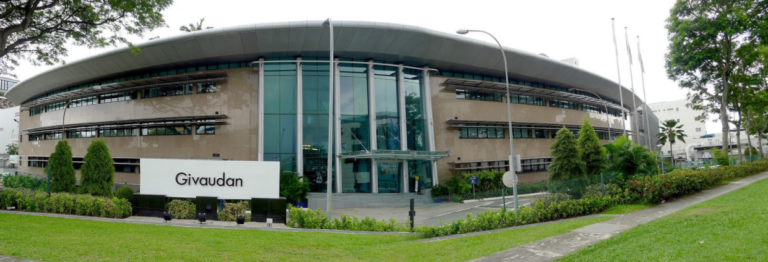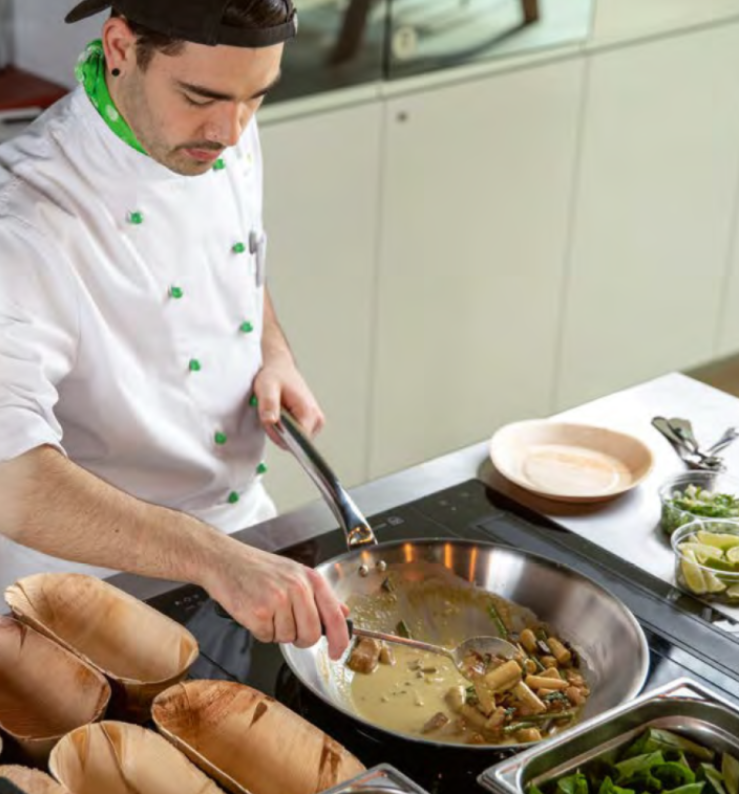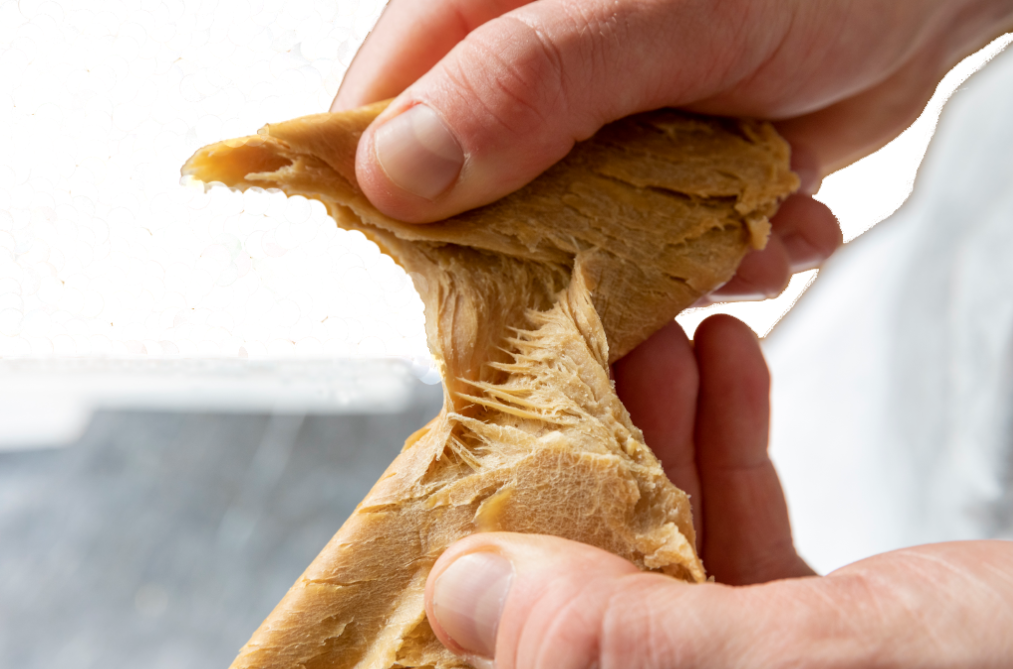
Scaling Up: Singapore’s First Plant-Based Meat Innovation Centre to Open This Spring
Between Singapore recently granting the world’s first regulatory approval of cultivated chicken and luring international startups like Eat Just and Perfect Day to make the city-state their regional home base, The Lion City is on a roll.
Now, in one of the most significant developments for the future of plant-based meat in Southeast Asia, multinational food-industry manufacturers Bühler and Givaudan are joining forces to open Singapore’s first pilot facility dedicated to accelerating plant-based foods, dubbed The Protein Innovation Centre (PIC).

To get the inside scoop on what this new facility will mean for alternative proteins in Asia, we sat down (virtually) with Bühler’s Head of Technology, Dominique Kull.
Company Information
| Website | BuhlerGroup.com |
| HQ Location | Uzwil, Switzerland* |
| Since | 1860* |
| Business Type | Machinery for processing foods and manufacturing advanced materials (B2B)* |
| Revenue (2019) | CHF 3.3bn (USD 3.7bn)** |
| Staff Size | 13,000* |
| Ownership Status | Privately held* |
| Scope of Reach | Active in over 140 countries, with 100 service stations, 30 manufacturing sites, and 25 application centers*** |
Data retrieved from Pitchbook*, Bühler’s annual financial report**, and the Bühler website*** on 14 January 2021.
When, Where, and Why
Kull says that construction of the PIC is “well underway,” and that Givaudan and Bühler are planning to open the centre’s doors by the beginning of April 2021. Once open, the facility will aim to not only increase the number of plant-based products that are adapted to fit Asian cuisines and cooking styles, but will also strive to diversify the supply chain by exploring new raw materials from throughout the region.
In addition to being Singapore’s first industrial scale plant-based meat pilot facility, Kull also notes that the PIC will mark the first time anywhere in the world that multiple food industry leaders have decided to join forces to open a facility dedicated specifically to alternative protein. He expects that this one-stop service experience will attract entrepreneurs and experts from around the world and help companies overcome barriers to alternative meat product development.
Sending Meat Producers Back to School
In addition to drawing in food industry experts, the Protein Innovation Centre also aims to create more of them. Replicating successful educational training programs that Bühler already offers in Switzerland, the company will use their new Singapore facility to host multi-day educational workshops, teaching guests the ins and outs of creating successful plant-based meats from raw material intake to the finished product.
The training sessions will be geared towards varied audiences across the food space, from chefs and food-industry executives, to university researchers, raw material suppliers, and even conventional meat processors. In fact, Bühler has seen a spike in interest among meat producers from Australia and other countries within the APAC region, driven by the realization that the consumer shift towards alternative proteins is only getting stronger. By joining forces with Bühler’s team of experts, Kull believes that conventional producers will not only learn more about what already exists in the food landscape, but also de-risk their next project by shortening the time it takes to develop and release a new product into the rapidly-evolving Asian plant-based sector.

Plant-Based Opportunities Amid Turbulent Times
In recognition of the many pandemic-related travel restrictions that will continue to be a reality throughout this year, the PIC is equipped with advanced video conferencing technologies, so that the important work of product development and educational courses can also be performed from a distance. Kull anticipates that at least for the first several months, they will operate on a hybrid model where one or two representatives from a client company will travel to Singapore in person, but the remainder of a company’s delegation will participate and observe the process remotely.
The Covid-19 pandemic has had a seismic impact on the global food sector by highlighting the risks that countries face by not having enough control over their own food security, while also accelerating consumer interest in alternative proteins. After an unprecedented disruption of supply chains, some of the long-lasting impacts may turn out to be that consumers get hooked on the healthier, more sustainable foods they have turned to during these unsettling times, and nations restructure their agricultural systems to protect against future turbulence. Both trends would be huge boons to the plant-based meat space that Bühler is working to accelerate.
Pushing Protein into New Territory
Kull believes that the world must invent new ways to nourish a worldwide population that will approach 10 billion people by 2050, and says that “diversifying our sources of protein is key to answering that challenge.”

Last year, Bühler joined Tyson Ventures and Temasek, among others, in funding up to 100 plant- and cell-based startups, as part of The New Protein Fund. Bühler is particularly interested in using their mechanical and technical know-how to discover new ways to transform beans, pulses, ancient grains, and other underutilized ingredients into plant-based meat. They are even exploring more radical options, like developing novel proteins from microalgae and yeasts, which require barely any land at all, thus making them ideal in an increasingly urbanized world.
For Kull, plant-based meats represent an opportunity to move away from artificial flavors and harmful ingredients, by instead tapping into as many natural, nutritious, and climate-friendly raw materials as possible. It’s a better way of making meat, without asking consumers to sacrifice on flavor or convenience. By accelerating the technological advancement of the plant-based space, and using the Protein Innovation Centre to teach others how to do the same, Bühler’s impact on what people across Asia Pacific eat has the potential to be permanently transformative.
Want to be among the first to visit the Protein Innovation Centre? Contact Bühler here.
